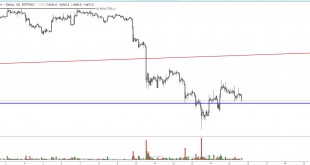Government Concerned About Bank’s AML Compliance
South Korea’s AML directives currently do not apply to cryptocurrency exchanges directly. The government has made banks responsible for monitoring and reporting any crypto-related money laundering activities.
In an effort to comply with the country’s AML directives, most major South Korean banks have been adding compliance officers.
NH Nonghyup Bank, for example, “recently created an independent unit exclusively to handle compliance-related issues,” the Korea Times reported on Friday, adding that the bank increased the number of its employees working in that unit from 16 to 23. Nonetheless, the Joongang Daily noted on Saturday:
Despite the effort, Korea’s financial watchdog, the Financial Supervisory Service [FSS], warned that the bank has not sufficiently improved its internal control system.
Collaborating with the US
South Korea has also been collaborating with the U.S. to boost AML measures relating to cryptocurrencies. The Korea Times described:
U.S. Treasury Secretary Sigal Mandelker has discussed with FSC Vice Chairman Kim Yong-beom how to boost anti-money-laundering measures especially related to crypto-assets in addition to international cooperation measures.
However, the U.S. has found Korean banks’ AML measures to be inadequate. South Korea’s top financial regulator, the Financial Services Agency (FSC), said Friday that the New York Department of Financial Services (NYDFS) “has notified the financial regulator of its plan to investigate Korean banks (with operations in New York) that are suspected of failing to meet compliance guidelines.”
The U.S. regulator has already fined Nonghyup Bank $11 million “for inadequate control and a compliance system against money laundering,” the Joongang Daily conveyed, adding that the NYDFS “will start probes into six Korean banks operating in New York either by the end of this month or next month.” They are “Nonghyup Bank, Woori Bank, KB Kookmin Bank, Shinhan Bank and two state-run banks – the Industrial Bank of Korea and the Korea Development Bank,” the publication detailed, elaborating:
Since penalties from the New York DFS would damage the reputation of Korea’s financial industry in general, local financial regulators are also working to encourage the banks to strengthen their control and compliance systems.
The list includes banks that are providing real-name services to crypto exchanges: Nonghyup Bank, Shinhan Bank, and the Industrial Bank of Korea. They are responsible for ensuring that the crypto accounts they service are AML compliant.
Crypto Exchanges Voluntarily Complying
In South Korea, the Financial Intelligence Unit (FIU) is responsible for money laundering prevention and illegal fund flows, including terrorist financing. The FIU collaborates with the FSS to ensure that banks are adhering to AML rules. Both agencies report to the FSC.
Crypto exchanges are currently not directly regulated by the FIU or the FSS, but the regulators have proposed bringing them under the two agencies’ jurisdiction.
Meanwhile, the largest crypto exchanges in the country are voluntarily upgrading their AML and internal control systems. Bithumb has blocked 11 countries from using its platform and reduced withdrawal limits for accounts that are not using the real-name system. The Kakao-backed Upbit has adopted Thomson Reuters’ system for the same purpose. 23 crypto exchanges have also agreed to comply with the self-regulation standards set by the Korean Blockchain Industry Association.
 Trade Forex Forex and Commodities News
Trade Forex Forex and Commodities News




